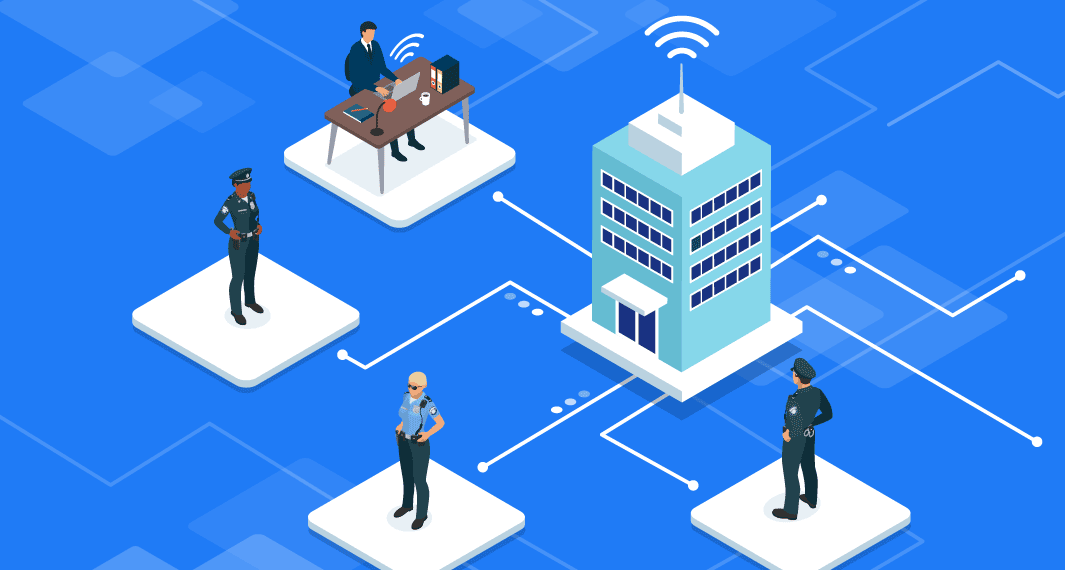‘Mission First, People Always:’ A Mantra for Security Talent
The phrase “Mission first, people always” is a common mantra in the military, and it is often borrowed in leadership studies. It’s a vision of success that invests in the success of those around you, a sense of shared mission (the why), no matter your specialty or job. Security teams can’t exist in silos, and security leaders need specific skills to help them reach across aisles and departments. Fostering connections between people and functions may well be one of the most significant markers of success, and without the support of others, you may well fail in your mission.
Often, I’m asked what I look for in a corporate security professional. Sometimes the question comes from someone trying to get into the business or advance their career; other times, it’s someone looking to hire.
My answer can be more complex because many of the characteristics of an effective corporate security professional differ from those listed on a résumé.
Though helpful, candidates don’t have to be former military or law enforcement. They also don’t need an MBA—though, again, that credential can be useful. Ultimately, it’s hard to understand threats to an organization, especially if you’re early in your career and don’t understand how it operates.
The most effective corporate security professionals share a common set of related skills. If I were to boil them down into one element, it would be this: They can listen well and connect with people.
Traditionally, the security industry tends to focus on the three G’s: guns, guards, and gates. But building strong soft skills is crucial for effective leadership in the security field. While technical expertise and knowledge of operational strategies are undoubtedly significant, the ability to effectively communicate, collaborate, and empathize with others sets exceptional security leaders apart from the mediocre.
Here are a few examples of how the best security leaders I’ve worked with have used soft skills successfully:
They Balance Humility with Confidence
How many have seen someone who compensated for a lack of confidence with arrogance and bluster? It’s not just an interpersonal shortcoming; it’s dangerous within security roles.
A great security professional speaks confidently but comprehends potential voids. In the security world, knowledge gaps could mean missed threats. Effective practitioners can also identify how to mitigate these knowledge gaps with integrated solutions—whether people, processes, or technology.
They Speak Truth to Power
Picture this: a newly minted executive is planning a security program. He or she is given a budget and a mandate to keep the company and its assets safe. Influential security professionals can articulate to leadership what they can safeguard and, more importantly, what they cannot if resources are inadequate. Whether designing a security program’s budget or managing a crisis, the best security practitioners can explain a situation professionally and succinctly, proving the value of their team and work.
They Leverage Curiosity to Adapt to a Changing World
There’s a stereotype of the corporate security professional. They are the quiet person in the back of the room with the earpiece, suit, and crew cut. When the glass is broken, their job is to react to crises. And unless there’s a crisis, they stay out of the way. Yes, there’s still room for the “quiet professional” in this world. However, practitioners are more frequently called on to anticipate risk and provide strategic counsel to leadership teams rather than just reacting.
Enabling business decisions requires a more expansive view of the threat landscape. For some, it means getting comfortable being uncomfortable with emerging tools and technologies that may not be second nature to them. The professionals I know are intelligent, inquisitive, and dynamic; they use their curiosity to develop creative problem-solving strategies.
They Assemble Teams with a Broad Range of Skills and Competencies
The rapidly changing threat landscape means we face more hazards than ever and an intense demand for tools and people with diverse backgrounds and experiences.
The question facing security leaders: How do I assemble a team to manage a demanding, rapidly changing environment? The future of security includes groups of people from traditional (i.e., three-letter government agency) backgrounds and non-traditional (i.e., data analysts) backgrounds with diverse experience and thought to provide holistic solutions to real-world risk.
They Connect Across Generations and Functions
A professional is only as good as their internal network in nearly any field. They need cross-functional support to push through crucial initiatives. Internal networking is particularly critical for security teams, which rely on cooperation and information from organizational allies to do their jobs. The ideal security professional connects people within the organization, from new hires to tenured executives, across human resources, finance, and IT. By breaking down silos, they communicate their mission and help others understand how security teams play a critical role in the business.
Building hard and soft skills enables security leaders to navigate complex organizational dynamics, influence stakeholders, and foster a culture of security awareness. These skills ultimately help them do their jobs better. By developing excellent communication skills, they can effectively articulate the importance of security measures to both technical and non-technical stakeholders. They can convey complex ideas clearly and concisely, ensuring everyone understands the potential risks and the need for proactive security measures.
Soft skill-savvy security leaders also excel in collaboration and teamwork. They are skilled at building relationships, fostering trust, and effectively working with cross-functional teams. They understand that security and risk mitigation are shared responsibilities and recognize the importance of involving stakeholders from various departments, such as IT, HR, legal, and senior management, to help them do their jobs and mitigate risk to their organization.
Chuck Randolph is a highly regarded security professional with extensive expertise in global operations and risk intelligence serving as Ontic's Chief Security Officer and leading The Ontic Center for Connected Intelligence. At Microsoft, he successfully led global operations and intelligence teams throughout his career, leveraging his expertise to safeguard executives, assets, and report on threat intelligence and risk trends. His extensive experience in executive protection, event risk management, and intelligence made a significant impact and transformed these services into strategic enablers. In addition to his remarkable tenure in the private sector, Randolph has a notable 30-year military career, retiring as a Lieutenant Colonel.














